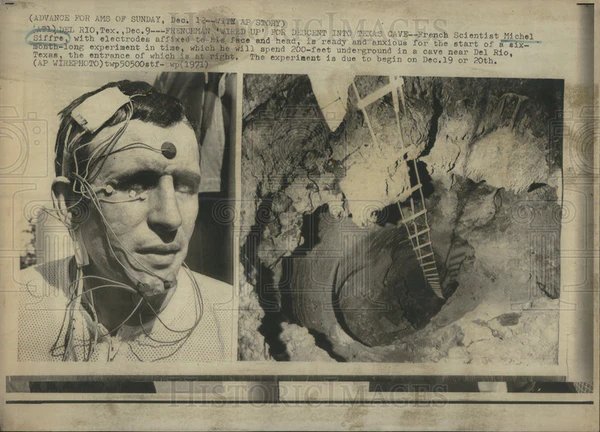Sublime
An inspiration engine for ideas

This Man Proved Time Is An Illusion. In 1972 he entered a cave chamber 440 feet below the ground, alone and isolated from any natural light & clocks. For six months he removed from all time references which led to his discovery of a human time warp and slowing down time. He found that without time cues, several people including himself adjusted to ... See more


SHOCKING 🚨 :
In 1972, A French scientist Michel Siffre volunteered to lose his mind.
He spent 180 days alone in a cave 440 feet underground with:
- No clock.
- No sun.
- No human contact.
What he discovere... See more

The more we synchronize ourselves with the time in clocks, the more we fall out of sync with our own bodies and the world around us. Borrowing a term from the environmentalist Bill McKibben, Michelle Bastian, a senior lecturer at Edinburgh University and editor of the academic journal Time & Society, has argued that clocks have made us “fatally
... See moreJoe Zadeh • The Tyranny Of Time
That is the predicate of the slender, poetic 1993 novel Einstein's Dreams by physicist Alan Lightman — a book about time and the tricks we play on ourselves to bear our transience, a book that does for time what Alain de Botton’s The Course of Love does for love: punctuating a fictional world with philosophical quickenings, th... See more
The Marginalian • Einstein’s Dreams: Physicist Alan Lightman’s Poetic Exploration of Time and the Antidote to the Anxiety of Aliveness – The Marginalian
In the quiet moments before dawn, when the world should still be wrapped in the gentle embrace of darkness, millions of us are jolted awake by the harsh cry of alarm clocks. This daily violence against our natural rhythms is not merely an inconvenience—it is a symptom of a deeper malady that plagues our modern existence, one that manifests in three... See more
Shawn Westcott • The Cycles of Modern Life: Urgency, Control, and the Illusion of Comfort
references to a “second” or “morning” sleep. The picture he began to piece together of human sleep before the industrial era was not one anyone had ever remarked on before. It appeared that people slept in two bouts: an evening bout, which lasted from about 9 p.m. to sometime after midnight, and a morning bout, which lasted from around 2 a.m. to da
... See more